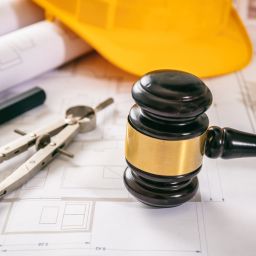
Enforcing HOA rules is often necessary to preserve property values and community standards. However, it involves complex legal procedures and carries risks. Understanding the process and potential downsides is vital—especially in Arizona communities where HOA law is stringent. This article describes how enforcement works, the possible consequences, and why legal guidance from Degnan Horne may be essential.
Understanding HOA Enforcement Processes
HOA enforcement typically begins within the internal governance framework. Most associations follow these steps:
Formal Notice and Internal Remedies
Initially, the HOA issues a written notice to the homeowner detailing the alleged violation. The declaration, bylaws, or CC&Rs often specify procedures such as hearings or opportunity to cure. In Arizona, Covenants, Conditions and Restrictions function as a binding contract between homeowners and the Association. Courts will enforce clear provisions and consider intent, purpose, and past interpretations.
Fines, Assessments and Liens
If a violation continues, the HOA may impose fines or levy special assessments as permitted under CC&Rs and state statute. For unpaid fines or fees, the HOA may place a lien on the property pursuant to A.R.S. 33‑1807; this is enforceable as long as the Association follows statutory notice and procedural requirements.
Formal Legal Action
When internal resolution fails, the HOA or individual homeowner may file a breach of contract lawsuit. In Arizona, either party may sue under the CC&Rs to enforce restrictions or recover damages and attorneys’ fees. In neighbor disputes—such as noise or nuisance—homeowners may bring suits directly under contract or nuisance theories. HOA boards may also pursue fiduciary duty claims against directors or property managers who act in bad faith or conflict with community interests.
Potential Pitfalls of Legal Enforcement
Significant Costs and Delay
Legal remedies are rarely quick or inexpensive. Litigation can take months or even years and may involve high attorneys’ fees. Recovering costs is sometimes possible under prevailing-party provisions, but results are never guaranteed.
Community Tension
Enforcement litigation can inflame disputes among neighbors or between homeowners and the board. Even a technically valid claim may harm community relationships and undermine goodwill.
Procedural Mishaps and Challenges
HOA governing documents and statutory law require strict compliance. Mistakes in notice, violation of procedural rights, or overreach—such as imposing unauthorized fines—may expose the Association to counterclaims. Courts will interpret ambiguous CC&Rs against the drafter or consider surrounding circumstances to determine enforceability.
Risk of Overreach or Unenforceable Restrictions
CC&Rs may be invalid under federal or state law if they violate statute or public policy—for example, racial discrimination provisions or unlawful restrictions under federal housing rules. Boards that act without proper authority may face court invalidation or liability. Additionally, some restrictions, such as certain satellite‑dish prohibitions, may no longer be enforceable under federal law.
Ensuring Effective Enforcement with Legal Guidance
Degnan Horne offers experienced HOA law counsel in Arizona. The firm has represented both associations and homeowners in covenant enforcement, breach of contract cases, assessment disputes, and fiduciary duty claims. With their dual perspective—on behalf of homeowners and associations—the team can help craft enforcement strategies that comply with CC&Rs, minimize risk, and protect community interests.
Why Work with Degnan Horne When Considering HOA Enforcement
Precise legal interpretation: Courts in Arizona enforce CC&Rs strictly, considering intent and clarity. A skilled attorney can help draft or enforce provisions effectively.
Protecting due process: Missteps in notice, hearings, or fines can invalidate enforcement. Degnan Horne ensures procedural compliance.
Mitigating escalation: The firm advises on whether to proceed with internal resolution, alternative dispute mechanisms, or litigation—evaluating costs, risk, and community impact.
Handling complex cases: In noise disputes, wrongful assessments, or fiduciary claims, their litigation experience protects client interests.
When Legal Action Might Not Be the Best Choice
Sometimes formal legal action may be excessive. For minor infractions, a well‐crafted letter or small mediation session may resolve issues faster with lower expense. Also, overly aggressive enforcement may backfire by alienating neighbors or inviting counterclaims. Degnan Horne can help assess whether alternative resolution may succeed—and when escalation is warranted.
Practical Steps Before Considering Lawsuit
- Review your governing documents carefully: understand notice requirements, fine limits, and enforcement rights under CC&Rs.
- Verify whether state law restricts enforcement powers—for example, liens under A.R.S. 33‑1807 or limitations on fines.
- Consider informal resolution options such as community meetings or mediation.
- Consult qualified legal counsel before issuing notices or filing suit.
Stronger Enforcement Begins with Smart Legal Strategy
HOA rule enforcement can protect property values and preserve community standards. Yet legal action involves risks—financial, procedural, and relational. A precise legal strategy, informed by governing documents and state law, avoids unwanted consequences.
If you’re in Arizona and considering enforcement—whether as a board member, manager, or homeowner—Degnan Horne can guide you through every step. Their expertise ensures that covenant enforcement is lawful, proportionate, and effective.
Taking the Right Approach to Enforcing HOA Rules in Arizona
Proper enforcement of HOA rules is essential—but fraught with traps. Understanding your governing documents, Arizona statutes, and best practices is key to avoiding liability or escalation. Whether you’re initiating enforcement or responding to one, it’s wise to have solid legal support.
If you are contemplating HOA enforcement in Arizona, reach out to Degnan Horne for a thorough legal evaluation. With their experience on both homeowner and association sides, they offer practical guidance to protect your interests.
Contact us today to ensure that enforcement is handled properly and effectively.
















